What Can Go Wrong?
- Someone may hurt themselves or someone else due to fatigue.
- Reduced visibility can impact both on time and risk.
- Night working on location can increase the security risk.
- Members of the public may cause injury if disturbed or upset by noise or intrusion.
Legal/91Èȱ¬ Requirements
- Regular work at night will entitle the employee to a health assessment.
Control Measures
General Controls
- Give the team as much notice as possible about working at night.
- Consider the journey times and travel arrangements of the cast and crew.
- Ensure safety critical activities are scheduled appropriately e.g. don’t have higher risk work such as stunts at end of night.
- Consider accommodation, taxis and arrangements for transport; these may need to be offered.
- Consider a health assessment via a questionnaire if the night working is to be regular.
- Keep access and egress clear of equipment and cables.
- Ensure that access and egress routes are adequately lit and that cables are properly managed.
- Identify any potential risks to personal safety at the location.
- Make the police and / or other relevant authorities aware of your recording intentions.
- Contact the Corporate Security Team and liaise with the police if you require further security advice.
- Consider the length of time and the location of the sequence if the recording may be contentious to the local people or area and the need for security (see pre-vetted list).
- Ensure arrangements for vehicle parking will be secure.
- Think about the need for working lights at location and unit base ensuring they do not dazzle drivers.
- Inform the cast and crew of any particular hazards.
- Keep noise levels to a minimum in public areas. If significant noise is likely liaise with the locals/the local environmental health officer to make them aware and help manage it.
- See our Safety Short on Working Nightshifts to help cope with the changes to the body clock caused by working unusual hours (see Useful Documents).
Division Specific Issues
- No division specific issues.
FAQs/Did You Know?
- The 91Èȱ¬ Academy has produced two films about Night Shift Working that are available from Useful Documents.
- Most people will feel less alert in the mid afternoon and around midnight and will feel particularly low in the early hours of the morning.
- Mental fatigue can result in errors of judgement.
- Tiredness can affect a person’s mood, making them more optimistic, less cautious and more reckless.
- People feel the cold more at night.
- Sedatives to aid sleep can lengthen reaction times and increase the risk of accidents.
Useful documents
Recommended links
- [Gateway]
- [Gateway]
- [Gateway]
Personal Health & Wellbeing topics
 Drugs and AlcoholThe 91Èȱ¬ has an agreed Policy in relation to Drugs and Alcohol. This guidance is extracted from that policy. In the case of doubt the 91Èȱ¬ Drugs and Alcohol Policy has precedence.
Drugs and AlcoholThe 91Èȱ¬ has an agreed Policy in relation to Drugs and Alcohol. This guidance is extracted from that policy. In the case of doubt the 91Èȱ¬ Drugs and Alcohol Policy has precedence.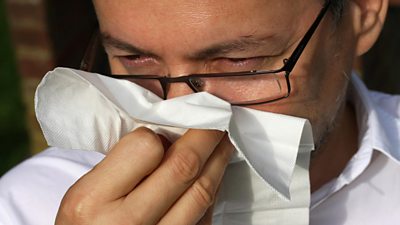 InfluenzaA guide to influenza, or 'flu', for individuals seeking general advice or during an epidemic or pandemic situation.
InfluenzaA guide to influenza, or 'flu', for individuals seeking general advice or during an epidemic or pandemic situation.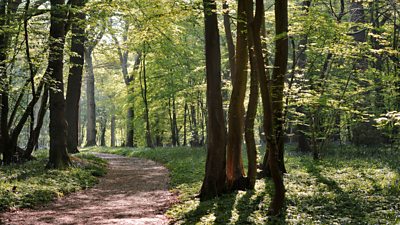 Mental HealthGuidelines relating to mental health providing guidance and advice.
Mental HealthGuidelines relating to mental health providing guidance and advice. Night Filming and RecordingA guide to working at night on location between sunset and sunrise (approx 2300 - 0600).
Night Filming and RecordingA guide to working at night on location between sunset and sunrise (approx 2300 - 0600). Night Shifts and Shift WorkingHow to minimise the effects of night shift working.
Night Shifts and Shift WorkingHow to minimise the effects of night shift working.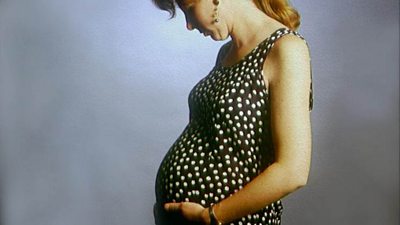 PregnancyA guide to health and safety considerations for pregnant and nursing mothers. In general day-to-day work activity is not harmful in pregnancy. There are, however, some work factors that can cause harm and need to be considered.
PregnancyA guide to health and safety considerations for pregnant and nursing mothers. In general day-to-day work activity is not harmful in pregnancy. There are, however, some work factors that can cause harm and need to be considered.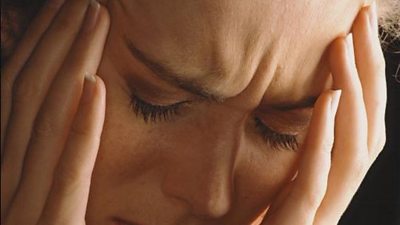 Pressure and StressA guide to recognising and managing pressure and stress.
Pressure and StressA guide to recognising and managing pressure and stress.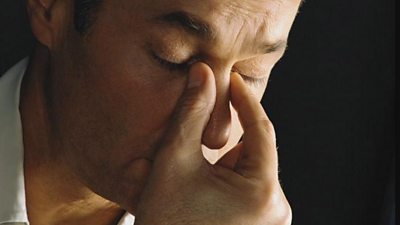 Tiredness and FatigueA guide to the scheduling and management of your team’s working hours to help safeguard them from the effects of fatigue.
Tiredness and FatigueA guide to the scheduling and management of your team’s working hours to help safeguard them from the effects of fatigue.
More from SSR
- Your platform to record accidents, risk assessments, assurance monitoring and inspections
- Safety Equipment StoresJust one number to call: 0844 800 8875
- 91Èȱ¬ Safety GuidelinesAn A-Z of 91Èȱ¬'s Health and Safety Guidelines
- Safety Advice Line: 0370 411 0464 Email: safety@bbc.co.uk
- A-Z of 91Èȱ¬ Safety Guidelines
- Accident Reporting and Investigation
- 91Èȱ¬ Health & Safety Policy
- Contractors (incl. vetted lists)
- Contributors
- Fire Safety
- Freelancers
- Independent Production Companies
- Risk Assessment
- Safety Alerts
- Safety Responsibilities
- Safety Training
- Sets & Premises Safety Guide
Events guidance - key links:
- Exhibitions
- General Guidance
- Indoor Location Recce Checklist
- Outdoor Location Recce Checklist
- Major Incidents & Emergency Planning
- Marketing and Promotional
- Noise Exposure
- Planning and Management
- Responsibilities
- Responsibilities Form
- Laser Lighting Effects
- Strobe Lighting
- Temporary Stages and Rostra
Health topics - key links:
- (91Èȱ¬ network only)
- Contributors Fitness to Participate
- Display Screen Equipment (DSE)
- (91Èȱ¬ network only)
- First Aid and Welfare on Location
- International Travel - Risks & Health
- Manual Handling
- Mental Health: 91Èȱ¬page
- (91Èȱ¬ network only)
- Personal Health and Wellbeing
- Pregnancy
- Psychological Trauma Support & Trauma Risk Management (TRiM)
- Tiredness and Fatigue
- Travel Health Contacts
91Èȱ¬ High Risk - key links:
- CBRN and Industrial Spills
- Covert Filming
- Crisis Management and Security Support
- Demonstrations, Protests and Crowds
- Disaster Coverage
- Door Stepping
- (91Èȱ¬ network only)
- (91Èȱ¬ network only)
- Public Order
- Safety Equipment Stores
91Èȱ¬ Journalism - key links:
91Èȱ¬ Productions - key links:
- Aerial Filming and Airfields
- Animals: Displaying and handling for performance
- Boats: Working on
- Children and Young People
- Driving
- Electrical Equipment and Systems
- First Aid and Welfare on Location
- Food Safety (Cooking and Catering)
- Remote Location Working
- Roads and Streets: Working by
- Security of Productions on Location
- Stunts
- Tiredness and Fatigue
- Unmanned Aerial Systems (UAS aka Drones)
- Vehicles: Recording in, from and around
- Working at Height: Mobile Elevating Work Platforms
- Working at Height: Tower Scaffolds
- (91Èȱ¬ Network only)
91Èȱ¬ Security - key links:
91Èȱ¬ Sport - key links:
About this site
This site describes what the 91Èȱ¬ does in relation to managing its health, safety and security risks and is intended for those who work directly for the 91Èȱ¬.
It is not intended to provide instruction or guidance on how third parties should manage their risks. The 91Èȱ¬ cannot be held liable for how this information is interpreted or used by third parties, nor provide any assurance that adopting it would provide any measure of legal compliance. More information
Some links on this site are only accessible when connected to the 91Èȱ¬ network
